





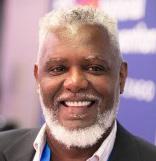
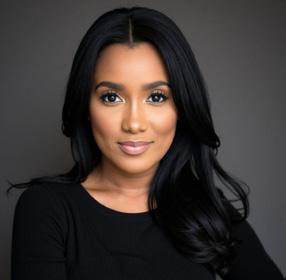

Caribbean American Heritage: A Contribution and a Celebration for 2025 - P 10
Black Americans Face Unequal Burden as U.S. Inches Closer to War by Stacy M. Brown - P 10
Jamaican-Born Health Strategist Kavelle Christie Named to Marquis Who’s Who - P 24
Caribbean Kings Helped Lead OKC to the 2025 NBA Championship - P 28

Bearing the brunt of war: UNICEF chief meets some of Sudan’s 700,000 child refugees crossing into Chad
In neighbouring Chad, children make up 61 per cent of the 860,000 Sudanese refugees and a staggering 68 per cent of the 274,000 Chadian returnees – that’s over 700,000 young lives uprooted by violence.
Chad, already one of the world’s poorest countries, has the fourth-highest child mortality rate in the world, despite significant progress in recent years.
The Government of Chad and humanitarian partners have been providing support, but the migration crisis remains overwhelming: measles and malnutrition are spreading, the risk of Sudan’s cholera outbreak spilling into Chad remains high.
Only one in three children are enrolled in school and essential services are stretched to the brink.
UN Children’s Fund (UNICEF) Executive Director Catherine Russell concluded a three-day visit to Chad on Monday, where she met with refugee children and families displaced by the fighting and chaos across the Sudanese border.
“Hundreds of thousands of the most vulnerable children are bearing the brunt of both the war in Sudan and the lack of essential services for those who have fled to Chad,” Russell said.
In eastern Chad, Ms. Russell “met women and children who arrived with little but the horrific memories they carry” and heard their stories of killings, mass rapes and homes burned to the ground.
Guterres condemns deadly attack on peacekeepers in Central African Republic
The ambush took place on Friday along the Birao-Am Dafock axis in the volatile Vakaga Prefecture, in northeastern CAR, close to the border with conflict-hit Sudan.
According to the stabilization mission, MINUSCA, the patrol was targeted by “unidentified armed elements” in the locality of Am-Sissia.
In a statement released by his Spokesperson on Sunday, Secretary-General António Guterres extended his deepest condolences to the bereaved families, as well as to the Government and people of Zambia, and wished a swift recovery to the injured soldier.
He stressed that attacks against UN peacekeepers may constitute war crimes under international law and urged the Central African authorities “to spare no effort in identifying the perpetrators of this tragedy so that they can be brought to justice swiftly”.
This marks the third fatal attack against MINUSCA peacekeeping patrols since the start of 2025.
In March, a Kenyan peacekeeper was killed in the Haut-Mbomou prefecture, and a month earlier, a Tunisian ‘blue helmet’ lost his life in the north. Earlier this week, two Nepalese peacekeepers were injured during an assault in the southwest. Valentine Rugwabiza, head of the UN mission, decried the “multiplication of attacks against peacekeepers” and echoed the call for justice, urging the authorities to act decisively.
Asia is warming twice as fast as the rest of the world
In April 2024, China broke the average temperature record that month. The following month, it was the same - and then again in August. And September. And November.
While there are records which exist to be broken – Olympic ones, for example -these monthly temperature extremes are not medal worthy. And yet, China was not the only Asian country to set a flurry of new highs in 2024.
The continent is warming twice as fast as the global average, according to a report released Monday by the World Meteorological Organization (WMO). This rate of warming – which shows no signs of stopping – is leading to devastating consequences for lives and livelihoods across the region, and no country is exempt from the consequences.
“Extreme weather is already exacting an unacceptably high toll,” said WMO Secretary-General Celeste Saulo on Monday. Large landmass, warmer temperatures
The WMO report said that Asia is warming twice as fast as global averages because of its large landmass, explaining that temperatures over land increase more quickly than those over sea.
“Variations in surface temperature have a large impact on natural systems and on human beings,” the report said.
The oceans around Asia are also experiencing temperature increases with surface temperatures in the Indian and Pacific Oceans reaching record levels in 2024.
Guterres urges Iran and Israel to ‘fully respect’ ceasefire
The UN Secretary-General on Tuesday welcomed the ceasefire announcement between Iran and Israel which was announced on social media overnight by US President Donald Trump.
Before both sides had confirmed that a ceasefire was in place early Tuesday both sides exchanged fire, with Tehran residents saying they had experienced a heavy barrage of attacks.
Before leaving Washington for a NATO summit in Europe, President Trump expressed his frustration at the breaches of the fragile ceasefire agreement, urging Iran and Israel to observe the truce. In a social media post, UN chief António Guterres urged both countries to fully respect the ceasefire.
“The fighting must stop. The people of the two countries have already suffered too much,” he said, adding it was his “sincere hope” that the ceasefire can extend to other parts of the region.
It is my sincere hope that this ceasefire can be replicated in the other conflicts in the region.
Earlier, the head of the UN-backed nuclear watchdog urged Tehran to consider “resuming cooperation” with the international community to quell any lingering hostility around its nuclear program.
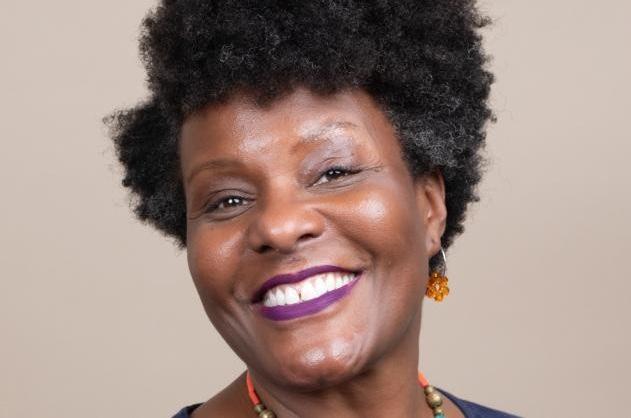
Howard University announced the appointment of Raquel Monroe, Ph.D., as the dean of the Chadwick A. Boseman College of Fine Arts. In this role, she will oversee academic, performance, and research programming for visual arts and design, music, and theater arts. An award-winning academic and cultural leader, she currently serves as a full professor and associate dean of graduate education and academic affairs in the University of Texas at Austin’s College of Fine Arts. Monroe will begin her new role Aug. 4, 2025.
“Dr. Raquel Monroe brings a rare combination of visionary leadership, interdisciplinary collaboration, research, and a deep commitment to the transformative power of the arts,” said Howard University President Ben Vinson III. “Her ability to unite faculty, students, and creative communities across boundaries will further elevate the Chadwick A. Boseman College of Fine Arts as a national and global leader in artistic excellence, scholarship, and innovation.”
Monroe is a founding board member of
the Collegium for African Diaspora Dance and a member of Propelled Animals, a multimedia, interdisciplinary arts collective. Before her work at UT Austin, she was a professor in dance and an administrator at Columbia College in Chicago, where she served as president of the faculty senate and director of academic personnel engaged in antidiscrimination and merit-based belonging initiatives. Her research interests include Black social dance, queer Black feminism, popular culture, and the efficacy of collaboration in driving social change. Her scholarship has been featured in numerous respected journals and anthologies, including Dance Research Journal, Resonance: The Journal of Sound and Culture, and the Journal of Pan-African Studies. Funding for her creative work in film, performances, installations, and choreography has come from numerous organizations, including the Walder Foundation, National Performance Network, USArtists International, MAP Fund, and the Studio for Creative Inquiry. “I am thrilled to work with colleagues to expand on the legacy of creative and intellectual excellence in the Chadwick A. Boseman College of Fine Arts at Howard University.”said Monroe.
Monroe received the Distinguished Alumni Award from the Herberger Institute for Design at Arizona State University, the
Mid-Career Award and Trailblazer Award from the Dance Studies Association, and the Excellence in Teaching Award from Columbia College in Chicago. She earned Bachelor of Arts degrees in dance and theatre and a Master of Arts degree in communication from Arizona State University and a doctorate in culture and performance from the University of California, Los Angeles.
Howard’s Chadwick A. Boseman College of Fine Arts carries forward Howard’s extraordinary leadership in the visual, musical, and performing arts and related pedagogy, history, and research. Howard’s graduates in these areas are trailblazers who have influenced multiple generations across the world, including Golden Globe winner Chadwick A. Boseman (B.F.A. ’00, D.H.L. ’18) Grammy Award winners Jessye Norman (B.Mus. ’67, D.Mus. ’82), and Roberta Flack (B.M.E. ’58, D.Mus. ’75), NAACP Image Award winners Taraji P. Henson (B.F.A. ’95, D.H.L. ’22) and Anthony Anderson (B.F.A. ’22), two-time Tony Award winner Phylicia Rashad (B.F.A ’70, D.H.L. ’09), and three-time Emmy Award winner and Kennedy Center honoree Debbie Allen (B.F.A ’72, D.H.L. ’93), among many others.
As violence and humanitarian suffering continue to escalate in the Middle East, the Caribbean Community (CARICOM) has issued a powerful call for an immediate and unconditional ceasefire in Gaza and is urging the international community to act swiftly to prevent further regional destabilization.
In a strongly worded statement released by its Council for Foreign and Community Relations (COFCOR), CARICOM described the situation in Gaza as a deepening humanitarian catastrophe, with civilians—particularly women and children—paying the ultimate price.
“Every day brings new reports of innocent lives lost, the continued blocking of food, medicine, and humanitarian aid, and the denial of basic human dignity. These actions are in direct violation of international humanitarian law and must end immediately,” the statement declared. While unequivocally condemning the attacks of October 7, 2023, and the taking of hostages, CARICOM also denounced the
disproportionate military response and the ongoing expansion of illegal settlements, which the bloc said continue to erode the possibility of a sustainable peace.
“We cannot support any response that disregards the sanctity of civilian life or violates international legal norms,” the regional body emphasized.
Reaffirming its support for a two-state solution as the only credible path to lasting peace between Israelis and Palestinians, CARICOM demanded not only a halt to the violence but also the immediate release of all hostages and administrative detainees and full humanitarian access to the affected areas.
The statement also highlighted growing alarm over the potential for a broader conflict following direct military clashes between Israel and Iran. CARICOM warned that the situation, if left unchecked, could plunge the region into a dangerous and uncontrollable escalation with severe global consequences.
“The threat of regional war is real. Now is

the time for de-escalation, for diplomacy, and for the exercise of maximum restraint. Retaliatory strikes and military posturing will only fuel further suffering,” the ministers urged.
CARICOM called on all global actors to intensify diplomatic efforts to resolve the conflict and underscored the need for the international community to redouble its commitment to dialogue, negotiation, and respect for international law.
“The Caribbean Community stands ready to work alongside international partners to help forge a just, durable, and peaceful solution that upholds the rights, security, and sovereignty of all peoples in the Middle East,” COFCOR stated.
As violence continues to spiral, CARICOM’s appeal adds a firm regional voice to the growing global demand for an end to the bloodshed and the restoration of humanitarian protections.
A few months after she led a high-profile investigation into allegations of misbehavior in public office against the then commissioner of police, Erla Harewood Christopher, the Deputy Commissioner of Police, Suzette Martin, is now the subject of a police investigation.
In May, the Director of Public Prosecutions (DPP), Roger Gaspard, said there was no evidence to charge the then commissioner of police with any offence.
Newly appointed Police Commissioner, Allister Guevarro, told a news conference Monday that while Martin remains in her post, the police are investigating a matter in which a firearms dealer had submitted a report on June 18.
“I would have received a report from a firearms dealer against a Deputy Commissioner of Police, Miss Suzette Martin. That matter was in the public domain and as a result of that I would have decided to take some decisive action in terms of bringing to the fore, accountability and transparency in dealing with the matter.
“The firearm dealer would have indicated certain acts were carried out against him and he felt this was bordering on criminal conduct.
“I would not want to pronounce on exactly what is that criminal conduct because an investigation is under way and we will be certain that the investigation when completed will uncover whatever criminal conduct exists,” the newly minted top cop told reporters.
Guevarro said a decision to remove the deputy commissioner or send her on administrative leave remains within the purview of the Police Service Commission (PSC) which has been apprised of the report and the investigation.
He said that the probe is linked to Martin’s involvement in the 2022 arrest of firearms dealer and trainer Brent Thomas in Barbados. Thomas, 61, was detained while awaiting a flight to the United States and later charged with three counts of possession of firearms and four counts of possession of explosives.
In April 2023, High Court judge Devindra Rampersad ruled that Thomas’ arrest, carried
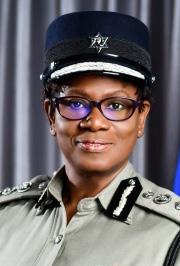
out by officers led by Martin, amounted to an “abduction.”
Guevarro said that the Trinidad and Tobago Police Service (TTPS) remains committed to its mandate despite recent controversy involving its leadership and that the decision to publicly confirm the probe into Martin showed the service’s commitment to transparency and accountability.
“I have every trust and faith in the investigative team that they will be able to uncover any misgivings that would have occurred or, I should say, lend to the misbelief that misgivings will occur,” he said.
In July last year, the state formally went on record admitting that the detention and return of Thomas from Barbados in 2022 was unlawful.
The admission was made at a hearing on July 24, of the Attorney General’s appeal of a High Court judge’s ruling that permanently stayed all criminal charges against Thomas, the owner of Specialist Shooters Training Centre. CMC
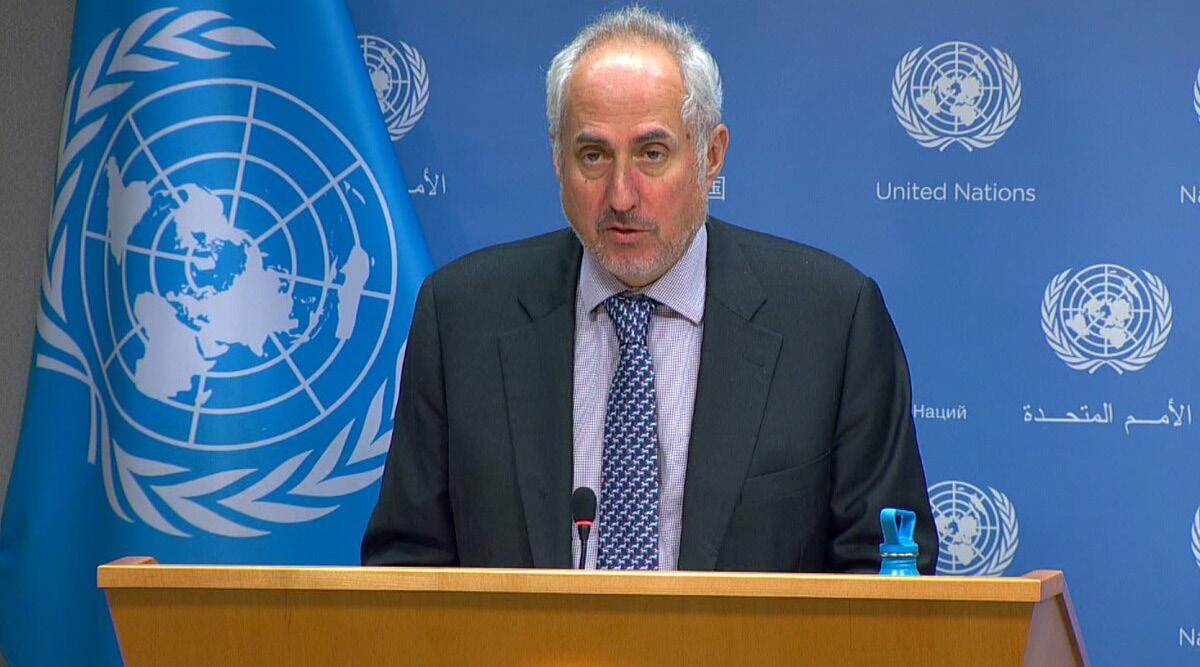
The United Nations on Monday warned that the Humanitarian Appeal and Response Plan in Haiti remains underfunded and that without additional support, the most vulnerable, especially women and children, will continue to pay the highest price.
UN spokesman, Stéphane Dujarric, told the daily briefing that the US$908 million plan is just eight per cent funded, with US$75 million in the bank.
He said that the UN humanitarian colleagues say they are concerned by the sharp rise in gender-based violence amid worsening insecurity and large-scale displacement.
“Our humanitarian partners report more than 3,800 incidents of gender-based violence were reported between January and May of this year, the vast majority of them perpetrated by armed men,” Dujarric told reporters.
“A sharp 41 per cent increase has been observed between April and May of this
year alone, with cases rising from nearly 2,700 to more than 3,800 incidents in just one month, the vast majority affecting women and girls. Internally-displaced people account for more than 60 per cent of survivors.”
Dujarric said rape remains the most commonly reported violation, representing nearly half of all cases, with half involving collective rape. He said most attacks occurred in homes and on the street, underscoring the extreme risks faced by women and girls as they just go about their daily lives.
The Centre department in Haiti recorded the sharpest increase, with over 50 per cent since April, closely linked to recent waves of displacement.
“Our humanitarian partners are working to provide referrals, as well as medical and psychosocial support services. However, protection services remain critically underfunded, and access to care is severely limited,” Dujarric said. CMC


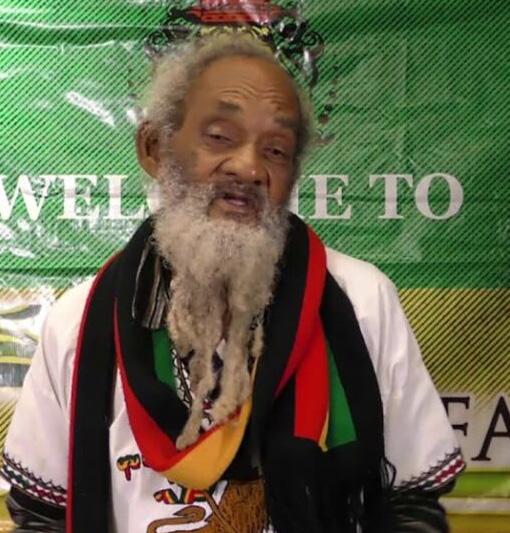
Rastafarian advocate Ras Iyah V is urging the Jamaican Government to urgently clarify and enforce legal protections for the sacramental use of ganja, amid continued reports of harass-
ment and inconsistent treatment by police and the courts.
The call follows a significant court ruling in Westmoreland, where Ras Jermaine Jackson, a licensed sacramental cultivator, was acquitted of possession and dealing charges. The judge also ordered that 70 pounds of ganja, seized during a police raid on May 27 at his Negril home, be returned. Jackson, affiliated with the religious group Herbs for the Pure, was represented by attorney Dr. Marcus Goffe, who successfully proved his legal right to cultivate and use ganja for religious purposes.
While welcoming the court’s decision, Ras Iyah V said the incident underscores the ongoing mistreatment of Rastafarians, many of whom still face legal action despite amendments to the Dangerous Drugs Act in 2015, which recognizes their right to use ganja sacramentally.
“We’ve had endless meetings with the police commissioner and government ministers, but
Rastas are still being harassed. Enough talk— what we need is action,” said Ras Iyah V, a former board member of the Cannabis Licensing Authority (CLA).
He noted that some Rastafarians have received formal documentation for sacramental ganja use, but many others, though practicing their faith sincerely, do not have papers and continue to be targeted.
“The Government must declare once and for all that Rastas should be left alone. The law already says so.”
Section 10 of the 2015 amendment allows individuals to cultivate up to five ganja plants for personal use, but Rastafarians have broader rights under the sacramental exemption. Ras Iyah V emphasized that these rights are often overlooked, leading to confusion and unfair treatment.
He also criticized what he described as inconsistent rulings in the courts, referencing
two recent cases with the same charges—one dismissed, the other resulting in a fine.
“It’s unjust. The law must be applied equally. Rastas shouldn’t be in court at all for sacramental ganja use.”
In response, Ras Iyah V has written to Chief Justice Bryan Sykes, calling for structured dialogue between the judiciary and the Rastafarian community. He’s also pushing for increased awareness within the police force.
“Police stations should display copies of the 2015 amendment so officers know the law. I brought one to a station in Montego Bay, and they said it was the first time they were seeing it.”
His message to the state is simple:
“The law is clear. It’s time for it to be fully understood and respected—not left up to individual police or judges. Rastafarians deserve protection from injustice, not continued persecution.”
KFC Jamaica’s 50th anniversary celebration turned into a national spectacle on Wednesday, as thousands of customers flooded the fast-food giant’s 40 locations to take advantage of its one-day-only “Big Deal Brawta” promotion. The offer—a free Meal Deal with every Big Deal purchase, capped at five meals per person—unleashed a wave of excitement that quickly escalated into long lines, jam-packed stores, and chaotic scenes at multiple outlets. From as early as 5:00 a.m., crowds began forming outside branches across the island, with some outlets overwhelmed before doors even opened. In some areas, the crowd’s eagerness boiled over into disorder. At the Springs Plaza restaurant in Half-Way Tree, customers reportedly pushed, shoved, and fought to get inside, forcing security staff into a state of high alert. Glass panes at at least one location were reportedly damaged in the rush.
Despite the long wait times and growing frustration, many customers were overjoyed to be part of the celebration.
“Happy birthday, Mr. Kentucky! We come out here to celebrate,” cheered one woman at the Rockfort location, proudly walking away with boxes of meals. Though she believed the deal might be followed by price increases, she said the gesture was appreciated: “I’m glad they’re giving back, and I’m happy I finally got through.”
Regular customer Carolyn Brown echoed that sentiment, calling the deal a rare moment of corporate gratitude:
“We really here for the freeness, and we come KFC every day either way. I don’t see anybody else doing this. They’re giving back, and we glad.”
For others, the motivation was deeply personal. A mother who had waited since 9:00 a.m. refused to leave without getting meals for her children:
“You know how children stay already, so I
promised them I was going to get them KFC... I can’t afford to go back home without it.”
Another customer, beaming after receiving her order, summarized the national mood: “A nuff chicken we get, so of course mi happy. Mi a mek sure start eat right now, because I don’t want to wait till it get cold.”
Across the country, the event turned into more than just a food promotion—it became a cultural moment. Onlookers described it as a spontaneous celebration of Jamaican identity, with many comparing KFC’s presence in the country to that of a national institution.
“It’s not just about the chicken,” said one patron. “It’s about the excitement, the memories, the moment. KFC is like the third party in Jamaica—everybody rally around it.”
However, the massive turnout also prompted reflection on the broader societal impact.
Public health advocates raised concerns about the implications of such mass promotions centered on ultra-processed foods. With the island already facing high rates of non-communicable diseases and childhood obesity, critics urged a more responsible approach to food marketing.
Meanwhile, marketers and brand strategists hailed the campaign as a monumental success, calling it one of the most impactful and far-reaching promotional efforts in recent memory. Small businesses even tried to capitalize on the buzz, with some offering their own mini-deals to draw in spillover foot traffic.
In the end, the 50th anniversary wasn’t just a business milestone—it was a powerful reminder of the brand’s hold on Jamaican hearts (and stomachs). Through joy, frustration, anticipation, and a whole lot of chicken, KFC united the island in celebration, reaffirming its place not just in the fast-food market—but in the cultural fabric of Jamaica itself.



Governor Kathy Hochul was joined by local officials, SUNY Downstate leadership, community leaders and labor, and hospital groups to celebrate the historic $1 billion investment in SUNY Downstate’s hospital. Listening to the community’s input, the SUNY Downstate Advisory Board developed a plan to make infrastructure improvements and renovations that will modernize hospital care for this community.
“Every New Yorker deserves access to innovative, high-quality care,” Governor Hochul said. “This historic $1 billion investment into SUNY Downstate’s hospital will contribute to modernization and infrastructure efforts that will lead to a brighter future for this community.”
Governor Hochul worked with the Legislature to provide a historic capital investment in SUNY Downstate. The Governor championed $750 million in capital funding for SUNY Downstate’s hospital
in the 2024-25 and 2025-26 Enacted State Budgets. The Governor directed SUNY to dedicate its anticipated $50 million annual capital allocations in each of the next seven years to bring the total investment to more than $1 billion. This plan to make improvements to SUNY Downstate Hospital was developed by The SUNY Downstate Community Advisory Board, consisting of health care and community leaders who worked throughout the past nearly six months to gather input and ideas directly from the community to inform the proposal.
The Advisory Board’s report recommends: Retaining all current inpatient and outpatient services, including maternity and kidney transplant services
Converting all double occupancy rooms to private rooms with showers and add additional rooms, resulting in 225 operational beds (with the goal of increasing the current 165 average daily census)
Modernizing and expanding the emergency department to 45 stations
Establishing and renovating dedicated inpatient specialty units for cardiology, oncology, and orthopedics
Building a new hospital annex, including a state-of-the-art ambulatory surgery center that expands services in oncology and cardiology
Addressing the mechanical, electrical, and plumbing infrastructure issues that have resulted in repeated system failures
Improving leadership and operations to work towards operational sustainability
After gathering public and stakeholder input over many months, the approach recommended by the advisory board was presented to the public as an option under consideration at the fourth public hearing on April 28Last year, SUNY Downstate’s hospital faced a $100 million annual deficit and was at risk of being unable to operate without additional funding, while contending with a hospital facility in disrepair and vulnerable to major crises, including recent major infrastructure incidents.
SUNY Chancellor John B. King Jr. said, “Governor Hochul is making a historic investment in SUNY Downstate and Central Brooklyn, which will create a state-of-the-art, modern teaching hospital for generations of Brooklynites. This more than $1 billion investment, as part of a reasonable, scalable, and fiscally responsible plan, will ensure SUNY Downstate’s hospital moves forward and maintains all essential inpatient and outpatient services, as it expands to continue serving the needs of the community.”
The advisory board’s task was to consider
recommendations to establish a reasonable, scalable and fiscally responsible plan for the financial health, viability, and sustainability of SUNY Downstate within a range of available funds. Over the course of their deliberations, the advisory board:
Held four public hearings (one more than statutorily required) on January 22, February 27, March 13, and April 28, with two in Community Board #9 and two in Community Board #17
Met with numerous community stakeholders including the SUNY Downstate Medical School Department Chairs, the Brooklyn for Downstate advocacy group (twice), the leadership at SUNY Downstate, and other regional health care providers
Carefully reviewed analysis of the community health needs (including the Brooklyn for Downstate data needs analysis and recommendations for the future of SUNY Downstate, the Community Health Needs Assessment 2022 prepared by the NYC Health & Hospitals, and the New York State Department of Health’s Study of Healthcare System Inequities and Perinatal Access in Brooklyn report), Downstate Hospital’s financials, and the condition of Downstate Hospital’s physical plant Engaged a team of consultants to provide expert analysis, infrastructure assessment, financial modeling, architectural and engineering scenarios, and coordination to independently assess the reasonableness of the financial modeling and identify options to reduce the ongoing operating deficit.
As part of ongoing efforts to champion Black entrepreneurship and economic justice, Dr. Jamal Bryant is leading a powerful Juneteenth celebration through a two-day pop-up event spotlighting over 100 Blackowned businesses.
The Bullseye Black Market: Juneteenth Edition will be held on Saturday, June 21, from 10 a.m. to 7 p.m., and Sunday, June 22, from 11 a.m. to 6 p.m., at the Samson Family Life Center at New Birth Missionary Baptist Church in Stonecrest, Georgia. The free, family-friendly gathering will feature an expansive marketplace of Black-owned brands across fashion, wellness, home décor, and gourmet products, complemented by cultural performances, live entertainment, panel discussions, giveaways, and a Kids Corner filled with engaging activities for children.
This Juneteenth edition expands on the success of the inaugural Bullseye Black Market, launched by Dr. Bryant earlier this year as part of a national boycott of Target over its rollback of diversity, equity, and inclusion policies. That first marketplace, held over Easter weekend, drew more than 10,000 attendees.
“Our power is not simply in protest but in creating lasting pathways for economic independence,” said Dr. Bryant, Senior Pastor of New Birth. “This marketplace is a movement. We’re cultivating a thriving ecosystem for Black businesses, helping families build generational wealth, and ensuring communities have control over their financial future. This Juneteenth, we’re celebrating freedom not only as history, but as a mission we continue to advance.”
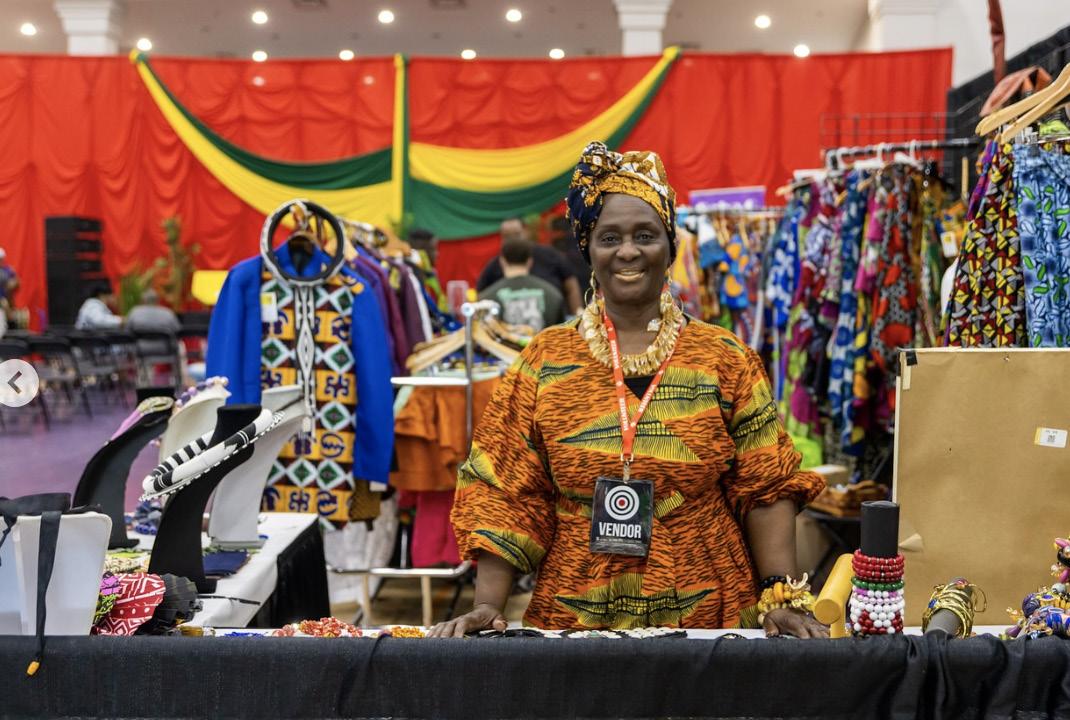


In celebrating June as Caribbean American Heritage Month, we are called to pause, reflect, and honor the powerful legacy of Caribbean Americans in shaping the United States. In an era when immigrants—particularly immigrants of color—face renewed scrutiny and hostility, this moment reminds the nation of a truth deeply embedded in its fabric: the indispensable role Caribbean Americans have played in the development and freedom of this country. From the very dawn of American independence, the Caribbean American presence has been prominent. The first casualty in the U.S. war of independence was Crispus Attucks, a
Black immigrant from Barbados. His blood marked the beginning of a long and unfinished journey toward liberty and justice. One of the key architects of this nation’s founding, Alexander Hamilton—an immigrant from St. Kitts and Nevis—helped define the principles, economic foundations, and the federal structure that shaped the United States. The massive Louisiana Purchase, which doubled the size of the U.S. and opened up the western frontier, was only made possible through the efforts of Black Haitians whose battle for independence broke the back of French colonial ambitions in the Western Hemisphere. The courage, sacrifice, and vision of the Haitian revolutionaries reshaped global history and paved the way for American expansion.
In the city of Chicago, a Haitian immigrant named Jean Baptiste Point du Sable transformed a small trading post into a bustling commercial hub. His pioneering vision laid the foundations for one of America’s greatest cities and an engine of economic growth in the Midwest.
Caribbean Americans have continuously stood at the vanguard of Black consciousness,
liberation, and achievement. Marcus Garvey, the Jamaican visionary, called for Pan-African unity and self-determination. W.E.B. Du Bois, of Bahamian heritage, brought intellectual rigor to the civil rights struggle and helped birth the NAACP. Prince Hall, of Barbadian descent, brought Freemasonry to African Americans, establishing a framework for leadership and community organization.
Trailblazing Caribbean American women have also etched their names into history. Shirley Chisholm, the daughter of Barbadian and Guyanese immigrants, became the first Black woman elected to Congress and ran a historic campaign for the U.S. presidency. Her audacity and integrity inspired generations.
From General Colin Powell, whose Jamaican roots shaped a life of discipline and honor in public service, to civil rights champions like Arabella Fields, to the barrier-breaking actors Sidney Poitier (Bahamas) and Cicely Tyson (Nevisian parentage), Caribbean Americans have made unmatched contributions to the culture, conscience, and civic life of the nation. And today, that legacy continues. Former Vice President Kamala Harris, daughter of a Jamaican father, is a living testament to the Caribbe

an spirit—bold, resilient, and visionary. This June, as we mark Caribbean American Heritage Month, we do more than celebrate. We proclaim a narrative that has been too long overlooked: Caribbean Americans have been builders, defenders, and dreamers of this nation from its inception to its present. Their contributions, born from struggle and perseverance, continue to shape a freer, more inclusive, and more just America.
Let us honor that legacy. Let us elevate those stories. And let us reaffirm the truth that Caribbean American history is American history.
by Stacy M. Brown, Black Press USA Senior National Correspondent
As the United States edges closer to possible military action against Iran, history signals a familiar reality for Black Americans: disproportionate risk, unequal support, and a long legacy of being asked to sacrifice more while receiving less. From World War I through Iraq and Afghanistan, Black servicemembers have routinely been overrepresented in combat roles and underrepresented in decision-making positions. Today, although Black Americans make up just over 13% of the U.S. population, they account for nearly 19% of active-duty Army personnel. “When the U.S. goes to war, Black Americans, whether as civilians, enlisted personnel, or military families, often carry a disproportionate share of the burden,” Liscah R. Isaboke, Esq., Managing Partner at Isaboke Law Firm, PLLC, told Black Press USA. “Historically, Black service members have been overrepresented in frontline and highrisk roles while underrepresented in officer ranks,” Isaboke said. “This exposure results not only in increased physical danger, but also long-term disparities in access to VA benefits, career advancement, and mental health care upon return.” That overrepresentation is linked to greater economic inequality. Recruitment data shows the military draws heavily from low-income communities, and Black Americans—more likely to face systemic barriers to college and employment—are disproportionately represented among enlistees seeking stability, education, or opportunity. Once enlisted, they are less likely to be promoted into leadership roles, often due to bias in evaluation
and selection processes. According to the VA’s National Health Study, 21.9% of deployed Black veterans screened positive for PTSD, compared to 14.1% of white veterans. Studies have shown that Black veterans are less likely to receive long-term, culturally competent mental health care and face more barriers to follow-up treatment. Military justice records also reveal that Black service members are more likely to face court-martial than their white counterparts.
“Black Americans have historically been overrepresented in the U.S. military while being under-protected both at home and abroad,”
Cazoshay Marie, a disability advocate, artist, and writer, wrote in an email to Black Press USA. “From the disproportionate impact of PTSD and other invisible war wounds among Black veterans to the lack of adequate support upon returning home, the psychological and socioeconomic costs of war weigh heavily.”
“Increased military spending often coincides with the defunding of essential programs—education, healthcare, and community infrastructure—which are lifelines in our communities,” Marie said. Those federal divestments have long-term consequences. During the post-9/11 wars in Iraq and Afghanistan, it’s estimated that the U.S. spent over $6 trillion on military operations, interest payments, and veteran care. As those expenses ballooned, domestic programs—including housing subsidies, public education investment, and job training—faced cutbacks. Black Americans, already on the receiving end of wealth gaps and institutional neglect, felt those losses acutely.
In their February 2024 essay “The Race Gap That Shapes American Views of War,” published in Foreign Affairs, Naima Green-Riley of Princeton University and Andrew Leber of Tulane University wrote that Black Americans have consistently been less likely than white Americans to support U.S. wars abroad. The authors cited not only political and moral skepticism but also a deeply rooted sense that these wars are carried out in the name of democracy while offering little tangible benefit to Black communities. “Black Americans are more inclined to ask: Is this war just? Will our people gain anything from it? And what are we sacrificing for a country that so often withholds justice at home?” Green-Riley and Leber wrote. The article pointed to cultural responses, including KRS-One’s 2008 track “Our Soldiers,” which critiques the Iraq War and opens with a siren that initially evokes U.S. policing. The song’s hook, “Frontline of the political war,” highlights a dual consciousness: the experience of fighting abroad while being targeted and marginalized at home. “As a historian of public health and policy, I can say that when the U.S. goes to war, Black Americans often shoulder a disproportionate share of both the burden and the consequences—on the battlefield and at home,” Dr. Zachary W. Schulz, of the Department of History at Auburn University, told Black Press USA. “Historically, military service has been a double-edged sword for Black Americans,” Schulz said. “From the Civil War through Iraq and Afghanistan, Black soldiers have fought for freedoms abroad they were
denied at home. Military service offered mobility, education, and sometimes even a pathway to civil rights advocacy—as in the case of the Double V campaign during WWII—but it also exposed Black personnel to racism within the ranks, limited advancement opportunities, and post-service disparities in veteran care.”
“Civilians are also deeply affected,” Schulz said. “Wars often fuel economic shifts and labor demands that open up jobs for Black workers—only to see those gains reversed when the war ends. Wartime policing and surveillance disproportionately target Black communities, and anti-war protest movements led by Black activists—think Muhammad Ali or Martin Luther King Jr.’s ‘Beyond Vietnam’ speech— have historically met with state suppression and public backlash.” “The impact is layered,” Schulz added. “Black Americans are overrepresented among the fighters, under-resourced in the aftermath, and frequently erased from the national narrative of sacrifice.” “We must tell the full truth,” Isaboke concluded. “Black Americans have always shown up for this country, even when this country has not always shown up for them, especially in times of war.”

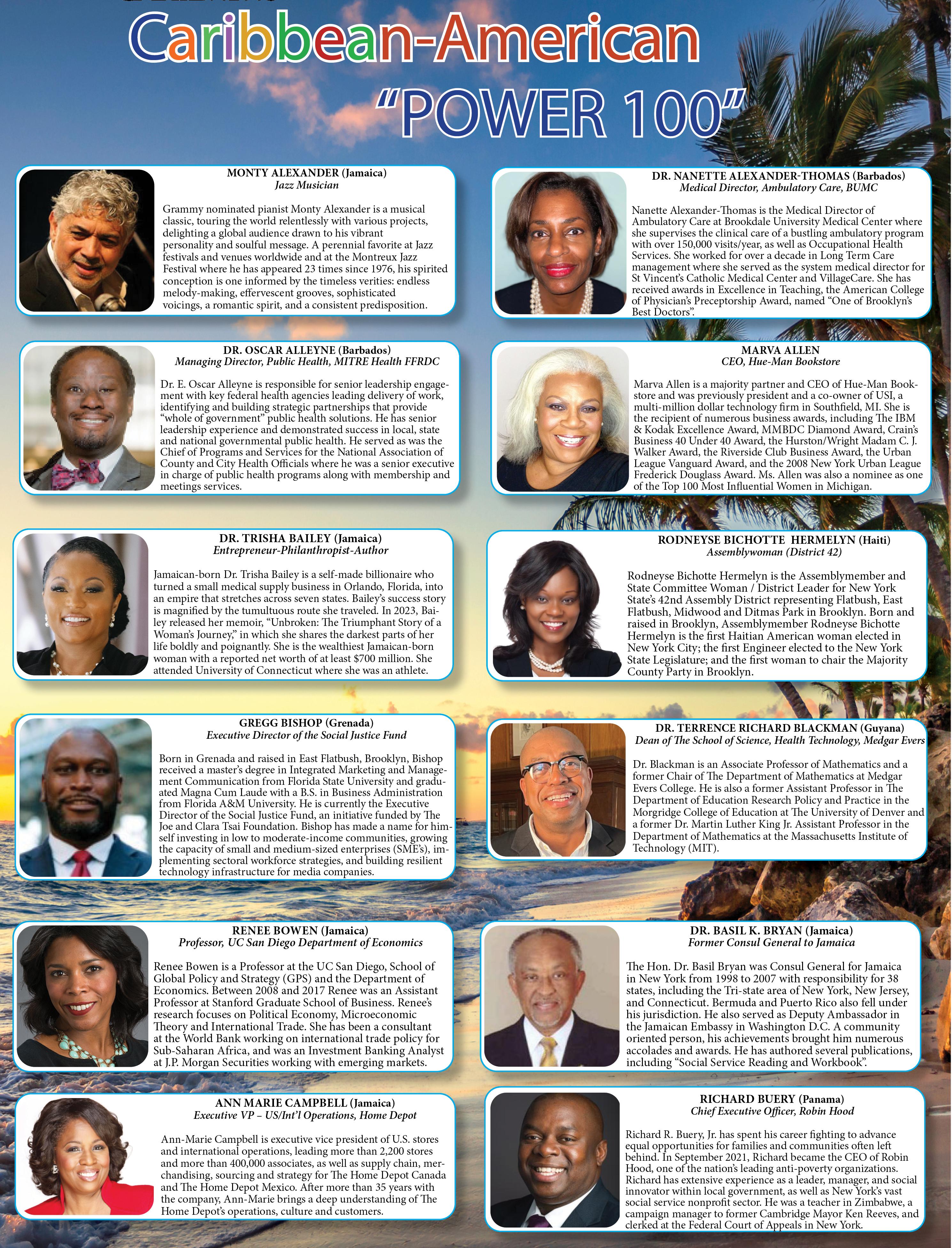
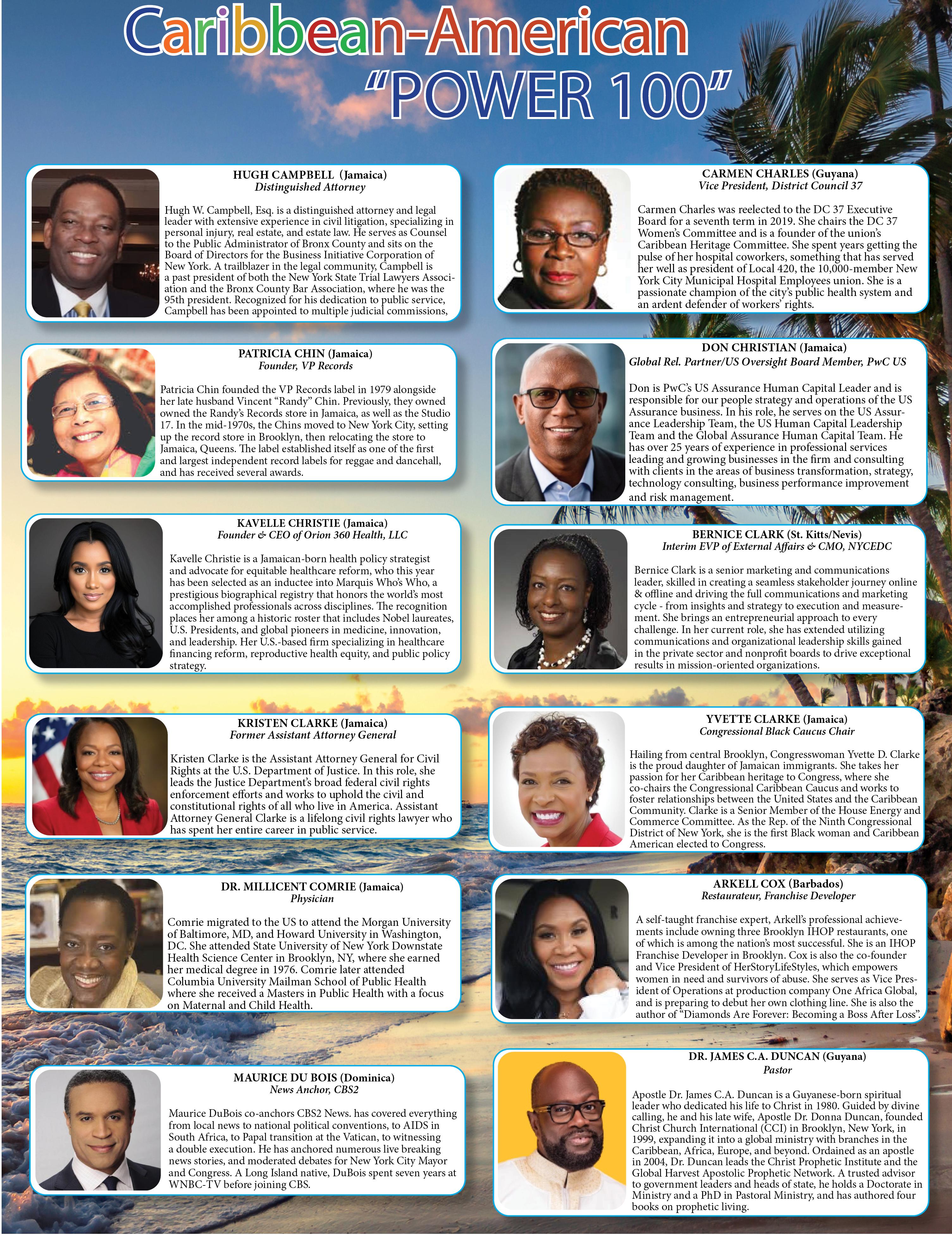
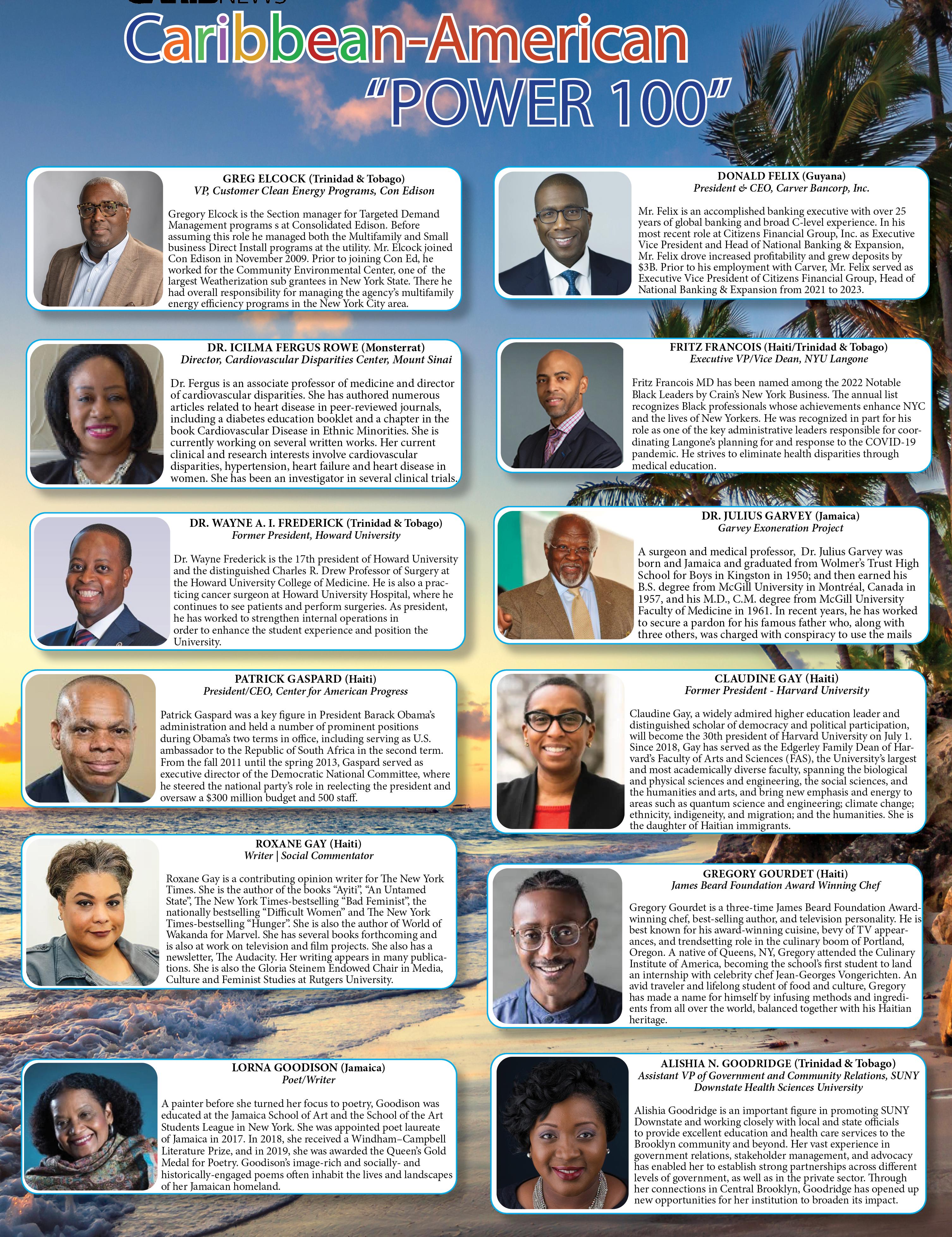


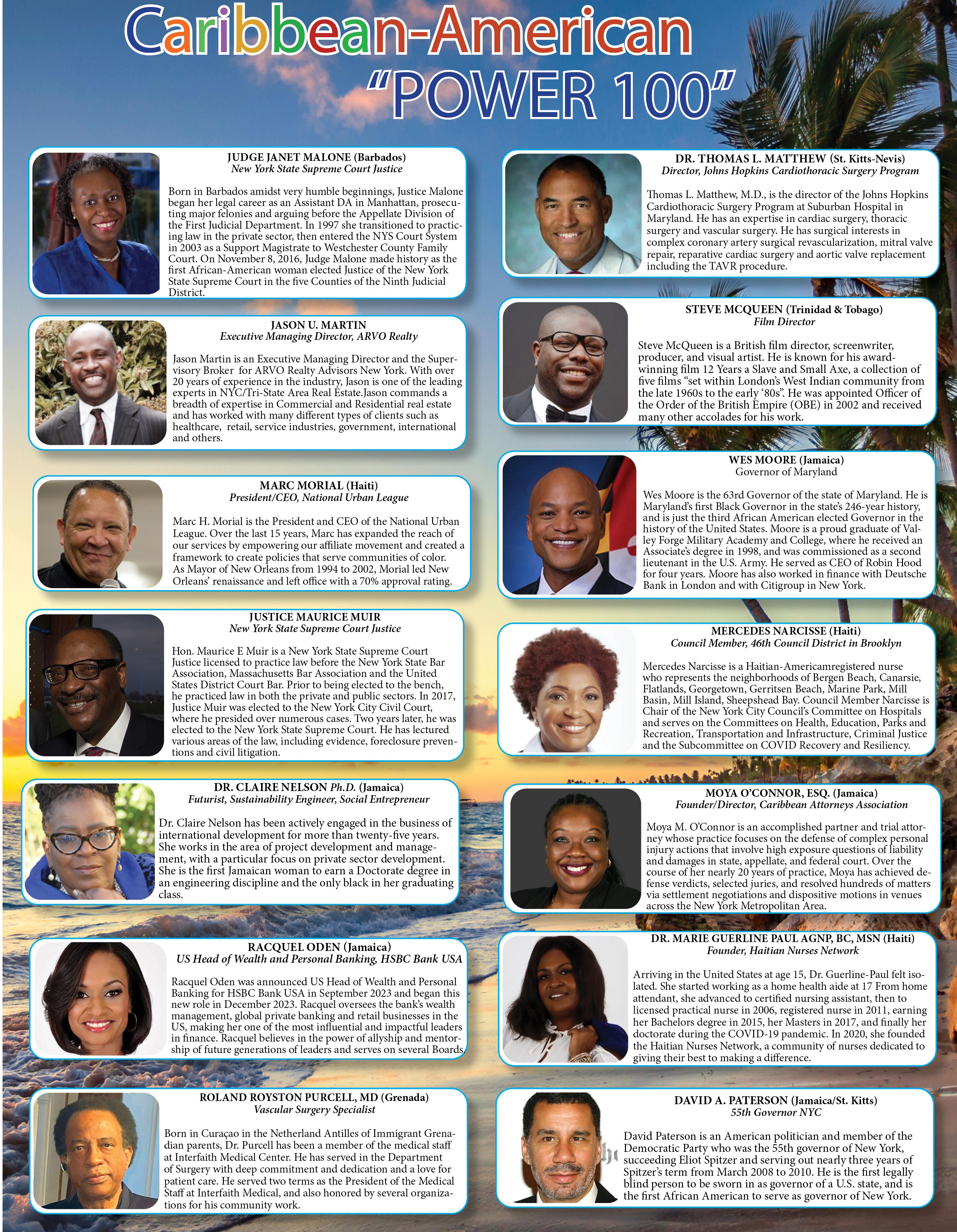


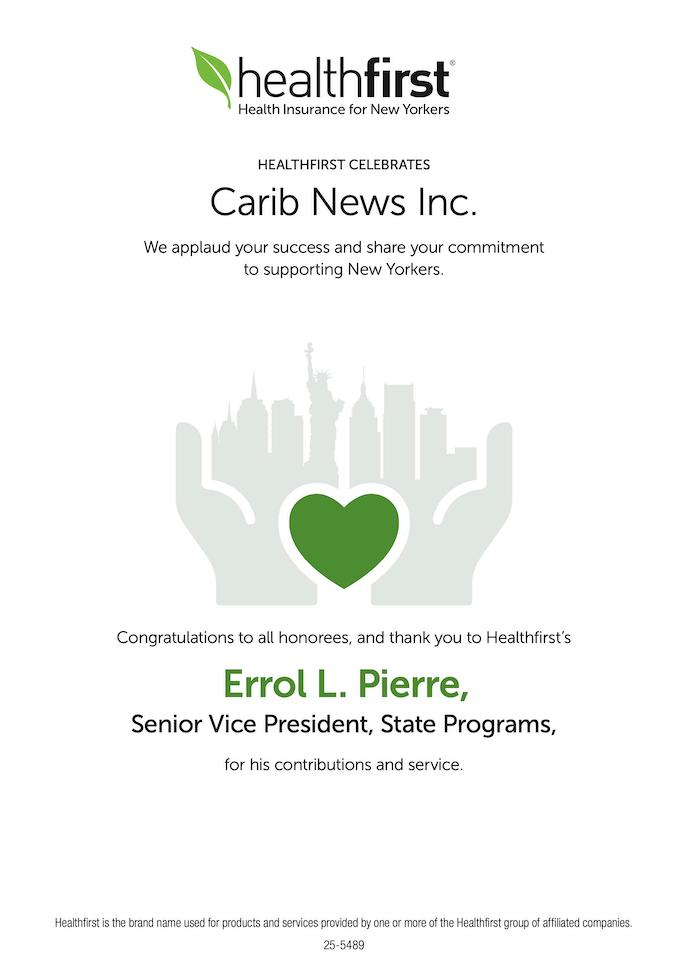
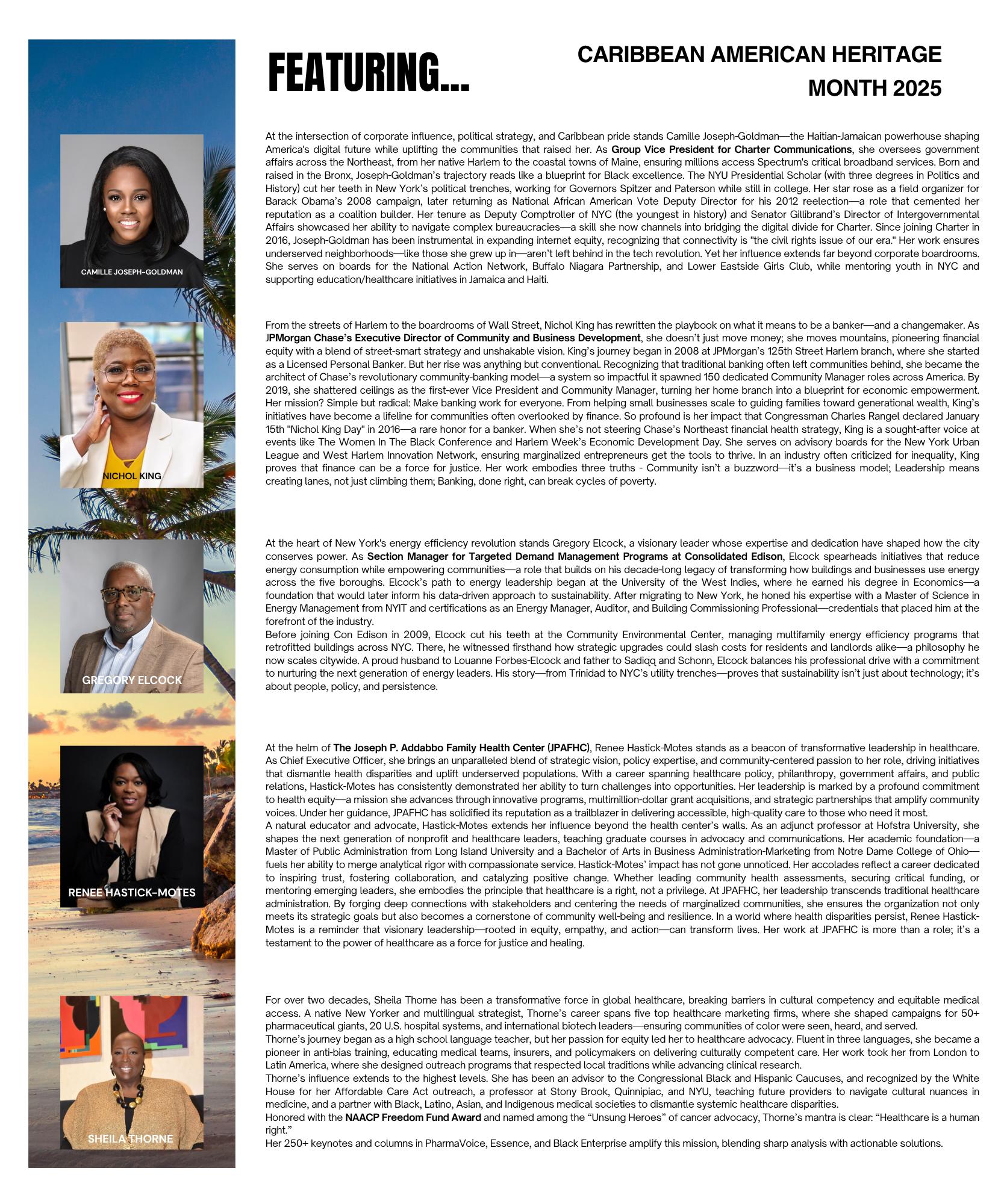


6200 BEACH CHANNEL DRIVE
ARVERNE, NEW YORK 11692
Adult and Family Medicine
Behavioral Health
Cardiology
Chronic Disease
Management
Dental
Wellness and Social Services
Endocrinology
Infectious Diseases
NYS Health Insurance
Enrollment
Nutrition Counseling
Pediatrics
Women’s HealthOB/GYN
Women, Infants and Children (WIC)
On-Site Laboratory
On-Site Pharmacy
Radiology

1288 CENTRAL AVENUE FAR ROCKAWAY, NEW YORK 11691
Adult and Family Medicine
Behavioral Health
Chronic Disease
Management
Dental
Wellness and Social Services
Endocrinology
Insurance Enrollment
Pediatrics
Nutrition Counseling
Cardiology
Radiology
Podiatry
Women’s Health - OB/GYN
Women, Infants and Children (WIC)
On-Site Laboratory
On-Site Pharmacy
114-39 SUTPHIN BLVD
JAMAICA, NEW YORK 11434
Adult and Family Medicine
Behavioral Health
Cardiology
Dental
Wellness and Social Services
Insurance Enrollment
Pediatrics
Podiatry
Nutrition Counseling
Women, Infants and Children (WIC)
Women’s Health - GYN
On-Site Pharmacy
Radiology
On-Site Laboratory
118-11 GUY R BREWER BLVD JAMAICA, NEW YORK 11434
Adult and Family Medicine
Dental
Wellness and Social Services
Insurance Enrollment
Pediatrics
Podiatry
Radiology
The Caribbean American Lawyers Association (CALA) held its dazzling Second Annual Gala on Thursday, June 5, 2025, at the elegant El Caribe Country Club in Brooklyn. The sold-out event brought together members of the legal community, civic leaders, and supporters for an unforgettable evening of celebration, unity, and purpose.
The Gala served as a major fundraising event to support CALA’s scholarship initiative, which aims to assist aspiring
attorneys—particularly those from Caribbean backgrounds—pursuing undergraduate and law school degrees. Since its founding in 2020, during the height of the COVID-19 pandemic, CALA has remained steadfast in its mission to uplift both the legal and Caribbean communities through mentorship, education, and advocacy.
This year’s Gala honored four exemplary leaders for their contributions to law and community service:
Hon. Rodneyse Bichotte Hermelyn, Assemblywoman and Brooklyn Democratic County Leader
Carl Forbes, Jr., Esq., Immediate Past President of the Metropolitan Black Bar Association
Rudyard Whyte, Esq., prominent attorney with The Cochran Firm and Chair of CALA’s Board
Judge Genine D. Edwards, who was recognized as Outstanding Jurist
Guests were treated to inspiring speeches,
live entertainment, and an atmosphere filled with camaraderie and pride. The event also highlighted CALA’s long-term vision: to foster unity among Caribbean judges and attorneys, and to create pathways for future generations to succeed in what CALA calls “the most noble profession.”
Organizers expressed gratitude for the evening’s success and remain hopeful that this momentum will help broaden their base of support for years to come.
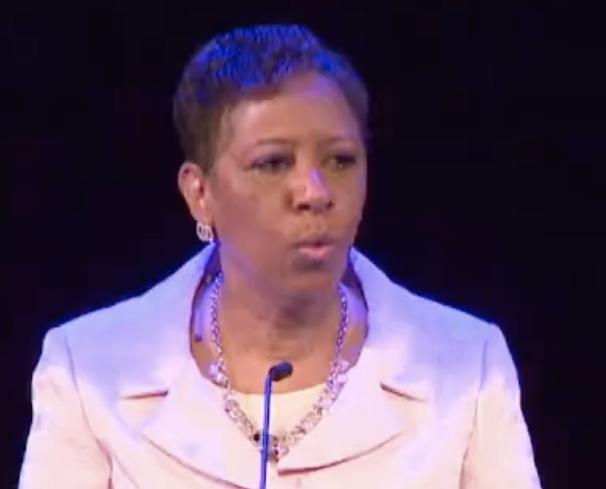
City Hall, NY – On Monday, Local Law 69 of 2025 took effect, requiring the Department of Finance (DOF) to notify property owners or their agents via mail or email when a deedrelated or mortgage-related document has been recorded for their property. Passed by the New York City Council as Introduction 1086-A this April, DOF is now required by law to send these notifications at least 30 days after a property-related document has been recorded. By notifying homeowners of such a document being recorded, they will be empowered to take appropriate action that prevents any attempted deed theft or efforts jeopardizing their control of property. This law is the latest in ongoing efforts by the Council to combat deed theft and protect working- and middle-class homeowners, especially in communities of color disproportionately targeted by predatory schemes. Deed theft occurs when someone illegally transfers ownership of a property by falsifying documents, forging signatures, or using other deceptive tactics. Property-related scams have been on the rise in recent years due to several factors, including the 2008 foreclosure crisis, the significant rise in property values, and additional financial strains on homeowners from the COVID-19 pandemic. Black and Latino homeownership communities have disproportionately been the target of these predatory financial schemes that threaten the loss of prized assets and the transfer of hard-earned wealth within families.
“Homeowners, particularly in communities of color, have disproportionately been subjected to threats that attempt to rob their families of prized assets and generational wealth,” said Speaker Adrienne Adams. “These predatory actions can further harm communities already
negatively impacted by economic inequities, deepening racial wealth gaps. The Council has consistently prioritized preserving and promoting homeownership as a critical pathway to economic mobility, including through deed theft prevention and support of homeowners in our neighborhoods. This new law will ensure homeowners are empowered to proactively protect their properties against harmful property-related scams.”
“Deed theft strips families of stability, legacy, and the homes they’ve spent generations building,” said Council Member Nantasha Williams.
“It’s one of the most predatory threats facing Black and Brown homeowners in this city and it thrives in the shadows of bureaucracy and silence. The Council’s work to prevent deed theft, including this new law, is about making sure New Yorkers are notified, informed, and protected before harm is done. The only way to end deed theft is to close the loopholes that let it thrive and this is a decisive step in doing just that.”
Local Law 69 is one of several new laws successfully passed by the Council to strengthen deed theft prevention. In April, the Council also passed Introduction 889-A (Local Law 68 of 2025), sponsored by Council Member Crystal Hudson, to require DOF to provide a notification to the local Council Member when a document is recorded against any property within their district that has been continuously owned by the same party for 30 years or more. This new law will take effect 90 days from Monday.
Earlier this year in February, the Council passed several other new laws to protect against deed theft and property-related financial scams. Local Law 25 of 2025, sponsored by Council Member Hudson, requires a purchaser submitting an offer to buy certain residential property that the owner has not listed for sale, is not actively selling, or did not intend to sell to disclose the estimated market value of the residential property, in writing and a clear and noticeable manner. Local Law 34 of 2025, also sponsored by Council Member Hudson, requires the dissemination of informational materials to educate older adults about potential scams.
Local Law 26 of 2025, sponsored by Council Member Kevin Riley, requires the Office of
the Homeowner Advocate to consult with the Department of Consumer and Worker Protection to provide support and counseling to homeowners and their heirs in order to protect their asset. The topics of support include estate planning, mortgage counseling, municipal payment assistance, repair financing, and scam prevention.
The Council has also collaborated with local
law schools and pro bono attorneys to provide free estate planning resources to New Yorkers across the five boroughs that help prevent deed theft. Speaker Adams first outlined these various efforts to combat deed theft in her 2024 State of the City address, highlighting the need to protect homeownership, especially in communities of color targeted by predatory financial practices.
law schools and pro bono attorneys to provide



If you listen closely, you can hear 100,000 of your co-workers clapping for you.
Congratulations to our colleague, Camille Joseph-Goldman, Group Vice President, State Government Affairs and all the honorees for their achievements.


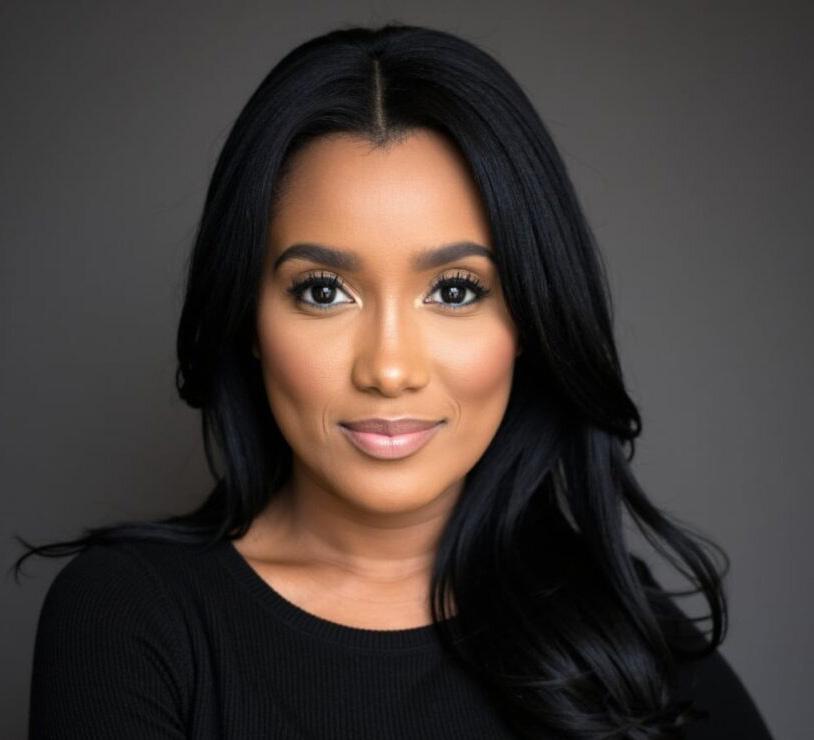
Kavelle Christie, a Jamaican-born health policy strategist and advocate for equitable healthcare reform, has been selected as a 2025 inductee into Marquis Who’s Who, a prestigious biographical registry that honors the world’s most accomplished professionals across disciplines. The recognition places her among a historic roster that includes Nobel laureates, U.S. Presidents, and global pioneers in medicine, innovation, and leadership.
Christie, who was raised in Jamaica, is the founder and CEO of Orion 360 Health, LLC, a U.S.-based firm specializing in healthcare financing reform, reproductive health equity, and public policy strategy. Her firm has been instrumental in helping governments, advocacy coalitions, and organizations expand Medicaid access, navigate healthcare regulations, and craft solutions to improve care delivery—especially for underserved communities.
Among her landmark achievements is co-leading Rhode Island’s groundbreaking Medicaid and private insurance doula reimbursement law—the first of its kind in the United States.
The policy transformed maternal healthcare in the state and has since been hailed as a national model for advancing birth equity. Her expertise spans a wide range of issues, including prescription drug reform, rural healthcare access, and regulatory oversight.
“As a Jamaican woman navigating U.S. health systems and power structures, I carry with me the cultural clarity, determination, and global lens that my family and this country gave me,” Christie said. “This honor is not just mine—it
belongs to every voice and story from communities like mine that deserve to shape the systems around us.”
Christie’s policy impact stretches across the U.S., particularly in the South, where she has partnered with local advocates to address maternal mortality, hospital closures, and reproductive care deserts. At the federal level, she has worked with national coalitions and members of Congress to ensure that the needs of impacted communities are reflected in public policy.
Through Orion 360 Health, she also offers executive coaching, strategy development, and communications support to mission-driven leaders and campaigns seeking to advance equity in healthcare and social policy.
Her insights have been featured by international media outlets including Forbes, BBC, NASDAQ, MSN, and the Polish Press Agency. She has consistently been recognized as a leading Caribbean voice in global health policy.
Her honors include:
Business Insider’s 30 Leaders Under 40 Changing Healthcare (2023)
Becker’s Black Healthcare Leaders to Know (2024)
Women to Watch by Black Leaders Worldwide (2025)
Top Women Leaders of 2025 by Women We Admire
Health Advocate Award Nominee at the Caribbean POSH ICON Woman Awards
Christie holds a Master of Science in Global Health from the University of Manchester, a top-ranked member of the UK’s elite Russell Group of universities.
Before transitioning into health policy, Christie established a strong reputation in Jamaica as a journalist and media strategist, advising high-profile figures and directing national communications campaigns. Today, her journey from the Jamaican press corps to U.S. policy circles stands as a testament to Caribbean excellence on the global stage.
Her induction into Marquis Who’s Who not only affirms her extraordinary accomplishments, but also marks a significant milestone for Caribbean representation in global healthcare leadership.
The Bahamas government says it is pausing the recruitment of nurses from Cuba and will also cancel its existing contracts with a Cuban recruitment agency.
Health and Wellness Minister, Dr Michael Darville, who paid a visit to Havana two weeks ago to review the current recruitment program, told Parliament that the government will enter into direct employment contracts with Cuban healthcare workers who are currently in The Bahamas.
“Following discussions with the US (United States) government through the Ministry of Foreign Affairs, my ministry negotiated new contractual terms with the Cuban recruitment agencies,” Darville told legislators during the 2025/2026 budget debate.
“After fruitful negotiations, we are prepared to cancel all existing contractual agreements and enter into a direct contractual agreement with Cuban healthcare professionals currently in The Bahamas.
“Those who agree to these terms will sign the new employment agreement by my ministry and remain in [the] country for deployment across the Family Islands,” he added.
Last week, the Guyana government said it would be implementing new conditions under which Cuban health professionals will be employed in The Bahamas as it plans to embark on the “aggressive” recruitment of foreign nurses to work at several new hospitals that are being built across the country.
“We’re recruiting people from around the world, not confined to Cuba but we’re working to ensure that people who come here from Cuba that they meet the definition because of what the US Secretary of State mentioned that the conditions of work here don’t run afoul of the requirements set by the United States of America,” Vice President Bharrat Jagdeo told his weekly news conference.
Caribbean Community (CARICOM) countries have defended the Cuban health brigade program after Washington announced the expan-
sion of an existing Cuba-related visa restriction policy that targets “forced labor” linked to the Cuban labor export program.
US Secretary of State Marco Rubio said this expanded policy applies to current or former Cuban government officials, and other individuals, including foreign government officials, who are believed to be responsible for or involved in the Cuban labor export program, particularly Cuba’s overseas medical missions.
Rubio, the son of Cuban immigrants who left Cuba in pursuit of the American dream, said that the new policy also applies to the immediate family of those people supporting the Cuban program.
“The department has already taken steps to impose visa restrictions on several individuals, including Venezuelans, under this expanded policy,” he added.
Darville told legislators that those who do not accept the new employment terms will be allowed to wrap up their affairs and return to Cuba.
“All further recruitment exercises of Cuban teachers and healthcare workers are currently on hold pending the outcome of the ongoing discussions between the Ministry of Foreign Affairs and our relevant counterparts in the United States,” he added.
The government has insisted that it is not engaged in forced labor and in May, Prime Minister Philip Brave Davis told reporters the government was renegotiating its labor agreements with Cuba and would pay all foreign workers engaged with the government directly.
In Parliament, Darville reiterated the need for Cuban healthcare workers due to shortages in the public sector, which he said are due to poor planning on the part of successive administrations and other nations luring Bahamian workers away with incentives.
Continued online at www.caribnews.com

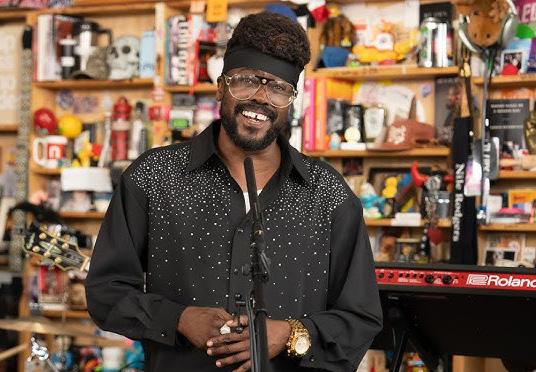
King of the Dancehall Beenie Man delivered a scorching set for NPR’s Tiny Desk Concert series, reminding the world why he remains one of reggae’s most iconic hitmakers. The Grammy-winning legend
transformed the intimate studio into a vibrant Jamaican dancehall session, blending classic anthems with infectious energy that had fans online buzzing for days.
Backed by a tight live band, Beenie Man
kicked off with the timeless “Who Am I”, instantly igniting sing-alongs from the in-house audience. His smooth transition into “Dude” showcased his signature rapid-fire flow, while a soulful rendition of “Romie” highlighted his versatility. The performance peaked with “Girls Dem Sugar”—complete with ad-libs that sent social media into a frenzy—before closing with an acoustic twist on “Foundation”, paying homage to dancehall’s roots.
The internet erupted after the drop, with fans praising the 47-year-old’s undimmed charisma:
“Di Real Don Dada Still Got It!”
“Beenie Man just schooled everyone on how to own a Tiny Desk!” – @ReggaeRevival
“That ‘Girls Dem Sugar’ performance? A whole cultural reset.” – @DancehallDaily
“The way he made NPR feel like a Kingston street dance? LEGENDARY.” – @ CaribbeanVibes
Even non-dancehall fans took notice, with one viewer tweeting: “I don’t understand patois but I’m 100% invested in this man’s vibes.”
Unlike typical stripped-down Tiny Desk shows, Beenie’s set kept the high-energy essence of dancehall intact. The band’s live reinterpretations (think: nyabinghi drums meets “Zim Zimma”) gave classics fresh depth without losing their party-ready edge.
This performance marked another win for Caribbean music on global platforms, following similar viral Tiny Desk turns by Koffee and Chronixx. For longtime fans, it was a victory lap; for new listeners, a masterclass in dancehall’s enduring power. Beenie Man didn’t just perform—he baptized NPR in the holy waters of Jamaican sound system culture. Consider the desk thoroughly “warmed up.”








The more patients perceive their physician as culturally competent, the more they comply with their medical recommendations.
Understanding and valuing the unique healthcare needs and lifestyle perspectives of multicultural patients is crucial to reducing health inequities and disparities. We help healthcare and pharmaceutical companies connect to patients from racially, ethnically and linguistically diverse populations, and the physicians who treat them. Through evidence-based and proven strategies, we equip professionals across the health ecosystem with the tools they need to create and deliver culturally competent services and improve patient outcomes.
PRODUCTS & SERVICES
• Community Mapping
• Ethnographic Market Research
• Channel Marketing Initiatives
• Clinical Trial Recruitment & Retention
• Cultural Competency Training
• Multicultural Community Coalition-Building

“We plan strategically, measure skillfully, and execute culturally!”



The Oklahoma City Thunder’s 2025 NBA Finals victory represented far more than just a basketball championship—for those who understand the journey, it was a triumphant Caribbean celebration. Behind the swirling confetti and gleaming Larry O’Brien Trophy stood two warriors with island roots: point guard Shai Gilgeous-Alexander of Antiguan heritage and defensive stalwart Luguentz Dort, who proudly represents Haiti with his “Respekte Nou” (Respect Us) jersey message. Their paths from Caribbean ancestry to NBA champions have become the stuff of sporting legend.
Gilgeous-Alexander, the 2024-25 NBA Most Valuable Play-
er, cemented his legacy by leading the Thunder to their first championship since the franchise relocated to Oklahoma City. The three-time All-Star and three-time All-NBA First Team selection carries his Caribbean heritage as a badge of honor. Born in Canada to parents of Antiguan descent, his athletic pedigree runs deep—his mother Charmaine Gilgeous competed in the 400 meters for Antigua and Barbuda at the 1992 Olympics, while his father Vaughn Alexander starred in Toronto high school basketball. This rich sporting lineage clearly shaped SGA’s championship mentality.
Dort’s journey to the pinnacle of basketball mirrors the resilience of his Haitian roots. Though born in Montreal like his fellow Haitian-Canadian rival Bennedict Mathurin of the Indiana Pacers—whom he faced in these Finals—Dort maintained strong connections to his culture, growing up speaking Haitian Creole at home. His path to NBA glory was anything but guaranteed after going undrafted in 2019, but his tenacious defense and improved scoring made him indispensable to OKC’s championship run.
The Finals showcased both players at their brilliant best. Gilgeous-Alexander dominated offensively, averaging 30.3 points per game while surpassing 30 points in five of the seven contests. His 38-point explosion in Game 1 and clutch 29-point performance in the decisive Game 7 earned him Finals MVP honors while making him the first Canadian scoring champion in NBA history.
Dort provided the perfect counterbalance with his defensive intensity and timely contributions. Having experienced the
heartbreak of a Game 7 loss earlier in his career, the Haitian-Canadian guard approached this championship opportunity with hard-earned wisdom. “You’ve just got to approach it like any other game,” Dort told The Oklahoman, reflecting on his growth since that 2020 defeat. His stat line in the clinching Game 7— nine points, seven rebounds, and three steals in 35 minutes— only partially reflects his game-changing defensive presence that helped secure the 103-91 victory.
With their championship triumph,GilgeousAlexander and Dort joined an exclusive club as just the 11th and 12th Canadians to win an NBA title. But their achievement resonates far beyond national borders—it stands as a testament to the growing influence of Caribbean athletic excellence on basketball’s biggest stage. As the Thunder celebrated their hardearned championship, two island nations half a world away celebrated right along with them, knowing these champions carried their heritage with every dribble, shot, and defensive stop on the road to glory.
The victory not only cemented OKC’s place in NBA history but also highlighted how Caribbean determination and talent continue to reshape the landscape of professional basketball. For Gilgeous-Alexander and Dort, this championship represents both the culmination of years of hard work and the beginning of a new chapter in their mission to inspire the next generation of island-born basketball dreams.
Sprint legend Usain Bolt, already the fastest man in history, has added another prestigious title to his name. On Wednesday, he was officially named a Guinness World Records Icon, an honor commemorating the publication’s 70th anniversary.
The Guinness World Records Icons list celebrates individuals who have shaped the world through extraordinary achievements. Bolt now
joins a distinguished group of global sports figures, including LeBron James, Cristiano Ronaldo, Simone Biles, Zion Clark, and Laura Biondo.
The presentation was made by Guinness World Records Editor-in-Chief Craig Glenday, who acknowledged Bolt’s unmatched impact on athletics and popular culture.
Accepting the honor, Bolt expressed his grati-

tude and excitement:
“Finally getting all the certificates which are going to look really good in my house, so I’m happy to be an icon,” he said. “Everybody can be a part of this book. Get the book, go through it, see what you can do, see the possibilities and just try it — because the possibilities are endless.”
Bolt holds multiple Guinness World Records,
including:
Fastest 100m: 9.58 seconds (Berlin, 2009)
Fastest 200m: 19.19 seconds (Berlin, 2009) Most Olympic gold medals in the 100m, 200m, and 4x100m relay
Now, as a Guinness World Records icon, Bolt’s legacy extends beyond track and field — inspiring new generations to pursue greatness in every field of endeavor.
